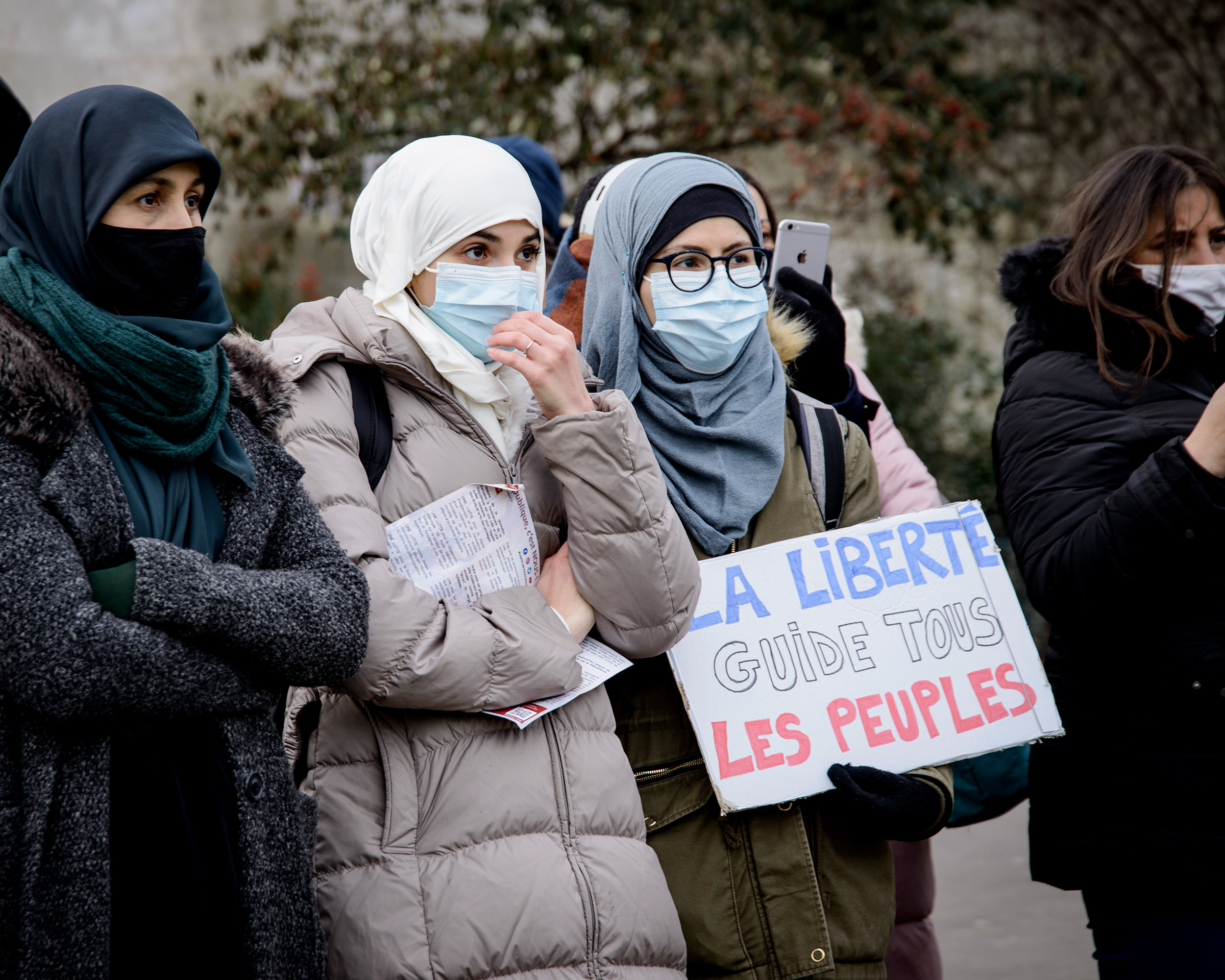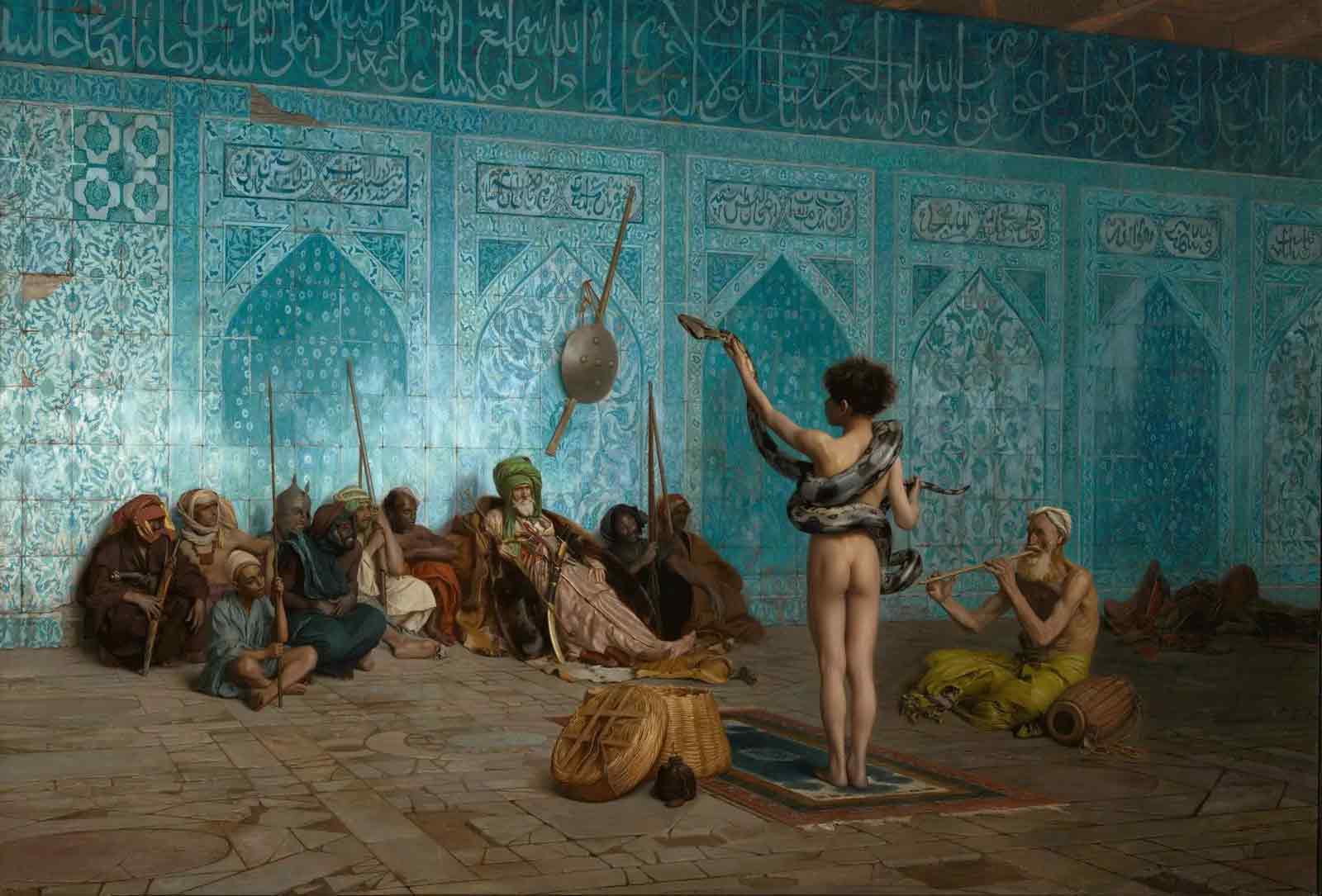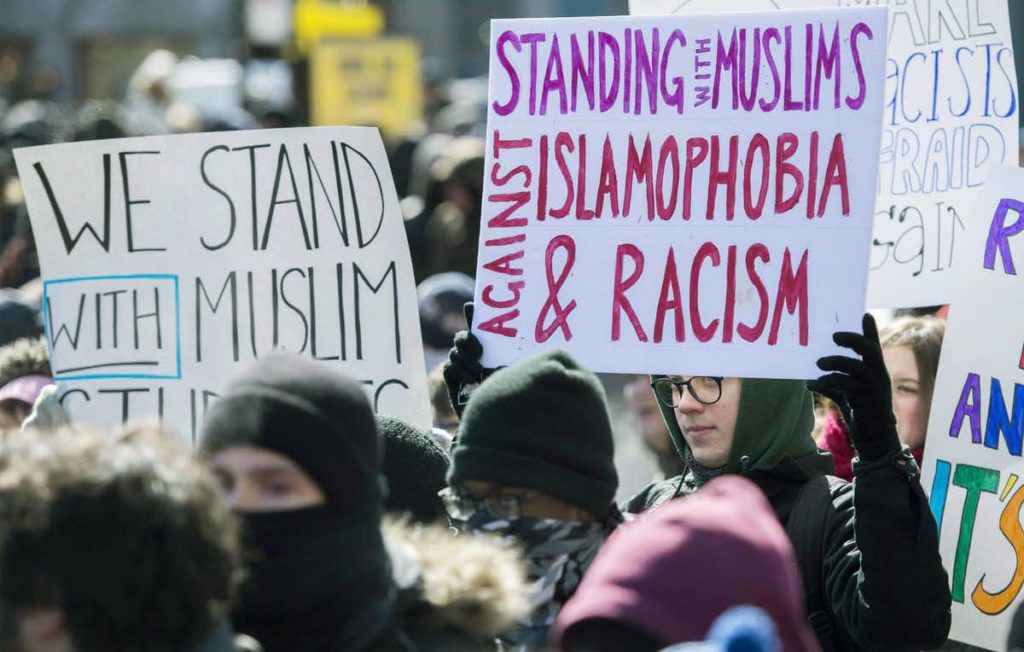When we think of the Middle East, we think of Saudi Arabia, Yemen, Egypt, the Red Sea. We think of both the towering skyscrapers in Dubai and the crumbling huts of the Yemani countryside. For some, one image is more resonant to their perception of the Middle East than others; the image of a totalitarian, barbaric hellscape.
Islam for these people is the absolute precipice of evil. They think of Muslims as gunslinging radicals with a mission to destroy the modern world and enforce what they think of as a dogmatic, insidious and pretentious religion. The debate on the inherent good of Islam has always been around. One of the influential religions in the world is sure to have opposition, but where did this radical hate of not only Islam but all Muslims originate? With Eid right around the corner and hijabs being the new target for anti-Islam legislation in places like Quebec and France, let’s explore the history of Islamaphobia and its reprecussions in the modern day.

Firstly, Islam is a religion that originates from the Middle East, specifically areas in Saudi Arabia. It should be made very clear that Muslim people are not inherently violent. The actions of a subset of this group do not represent the group as a whole. The overwhelming majority of Muslims are peaceful and non-violent human beings.
Islam has an extensive and rich history. The life of the Prophet Mohummad himself is complex. Historically, Muslims and the Islamic Empire have been revered throughout history. The Ottoman Empire was one of the most powerful and influential Empires in history. They kept their power through a powerful military force and a religiously politicized regime. So how exactly is it that today Muslims are seen as terrorists hell-bent on the destruction of modern society?
Orientalism
The specific phenomenon of Islamophobia spans back a few decades and originates from the practice of orientalism; which is the re-telling of the social, political, and economic structures of orient people by western scholars. Often these portals were exaggerated or purposefully misrepresented the lives of these people. Stereotypes of Asian people, or really any person of colour, originated from these portrayals. Europeans assumed that whatever they observed represented the norm for all people in the Middle East. Through this assumption, Europeans created a narrative for the Orient people that is wholly untrue, the majority of whom were Muslim. These stereotypes are likely ones you’ve heard before; violent, primitive, sexually deviant and sexist. Under these traits, they were automatically inferior to the West.

These stereotypes first gained traction during the 18th century. They stemmed from an overt misunderstanding and ignorance of Islam and Islamic society. But how did these ideas become so prevalent in today’s society? How did it evolve into such a complex humanitarian issue?
The Ottoman Empire
The fall of the Ottoman Empire has much to do with this. The Ottomans sided with the Germans during the First World War. They lost the war and officially broke apart in 1922. Tensions between the remaining nations erupted. The Empire was divided between Britain, France, Greece, and Russia. This became the cause of many civil wars and civil unrest. Nations previously part of the Empire rebelled and fought against the new government, which led to an astounding rise in terrorism, both domestic and foreign.
Likewise, some nations no longer had a stable government, which plunged them into recessions. These once very prosperous Muslim Nations were now knee-deep in corruption and violence, which only reinforced oriental stereotypes.
For the latter half of the 19th century, these countries fought in many different civil wars and survived multiple genocides. The situation was made altogether worse by the West, who used oriental stereotypes as an excuse to subjugate the people of the East and exploit their natural resources. Through this exploitation, a subsection of radical right-wing Islam began to take root in the Middle East, which created a tight circle of western push-back against Islamic extremism and a counter push by Islamic extremists against the West. Altogether, this contributed to the rise of religious extremism in the East and is widely understood to have culminated in one of the most influential events in US history on September 11th, 2001.
September 11 Terrorist Attacks
9/11 was undoubtedly one of the biggest tragedies in American history; along with being responsible for the death of 3000 Americans, it triggered an era of Islamic hate worldwide. One of the most notable of these anti-Islam campaigns was President Bush’s “War on Terror.” Not only was this war unjustifiable and overly expensive, but it also rebranded orientalism and created a new brand of American imperialism rooted in fascism.
Fascism is best defined as palingenetic ultranationalism. This is the idea that the nation has the ultimate authority, and that it has in recent years become tainted with ‘others’ and that to restore it to its former glory, it needs to drive out these others. This ideology is also often mixed in with the idea of religious and racial supremacy. Other identifying factors include the glorification of war, the ultimate authority of the military, a disregard for human rights, obsession with crime and punishment, censorship of the media and excessive propaganda, disregard for intellectualism and the arts, obsessive protection of corporate power and repression of worker rights.
Oriental stereotypes alongside the rise of fascism during the Regan Era and onward is what drove the war on terror, and it is what led the US to continue to occupy Afghanistan for as long as it did.
The events of 9/11 shocked the whole world. It is the reason airport security is as tight as it is today. This specific event led to Islamophobia being heavily prevalent in our society today, but anti-Muslim bigotry is sadly in line with other distressing trends seen globally. In recent years the world has seen a surge in ethnonationalism, neo-Nazism, and stigma and hate speech targeting vulnerable populations, including Muslims, Jewish people, and other religious and ethnic minorities. From the start of Covid, there’s been a significant increase in targeted hate crimes, specifically against Asian immigrants in America. Following 9/11, many immigrant families from the Middle East experienced unprecedented amounts of racism and hate crimes directed at them. Many Asians and Muslims continue to experience racially charged instances of Islamophobia and general xenophobia, despite the many social justice movements occurring in the last decade.
Considering the stereotypes of Islam held by the West, is Islamophobia a genuine critique of Islam and its followers, or a thinly veiled euphemism for racism?

Islamophobia has been on the rise worldwide for decades, but to eliminate it, we first need to abolish the systems that perpetuate it. The livelihoods of Muslim peoples and millions of minorities that experience the same kind of hate will always be at risk as long as systems of white supremacy, capitalism, and patriarchy exist. Discrimination diminishes the integrity of us all, and to safeguard the rights of minority populations, we must evoke radical political, economic, and social change.
Featured Image Source: 1
Image Sources: 1, 2, 3
Further Reading: 1, 2, 3, 4, 5, 6, 7
